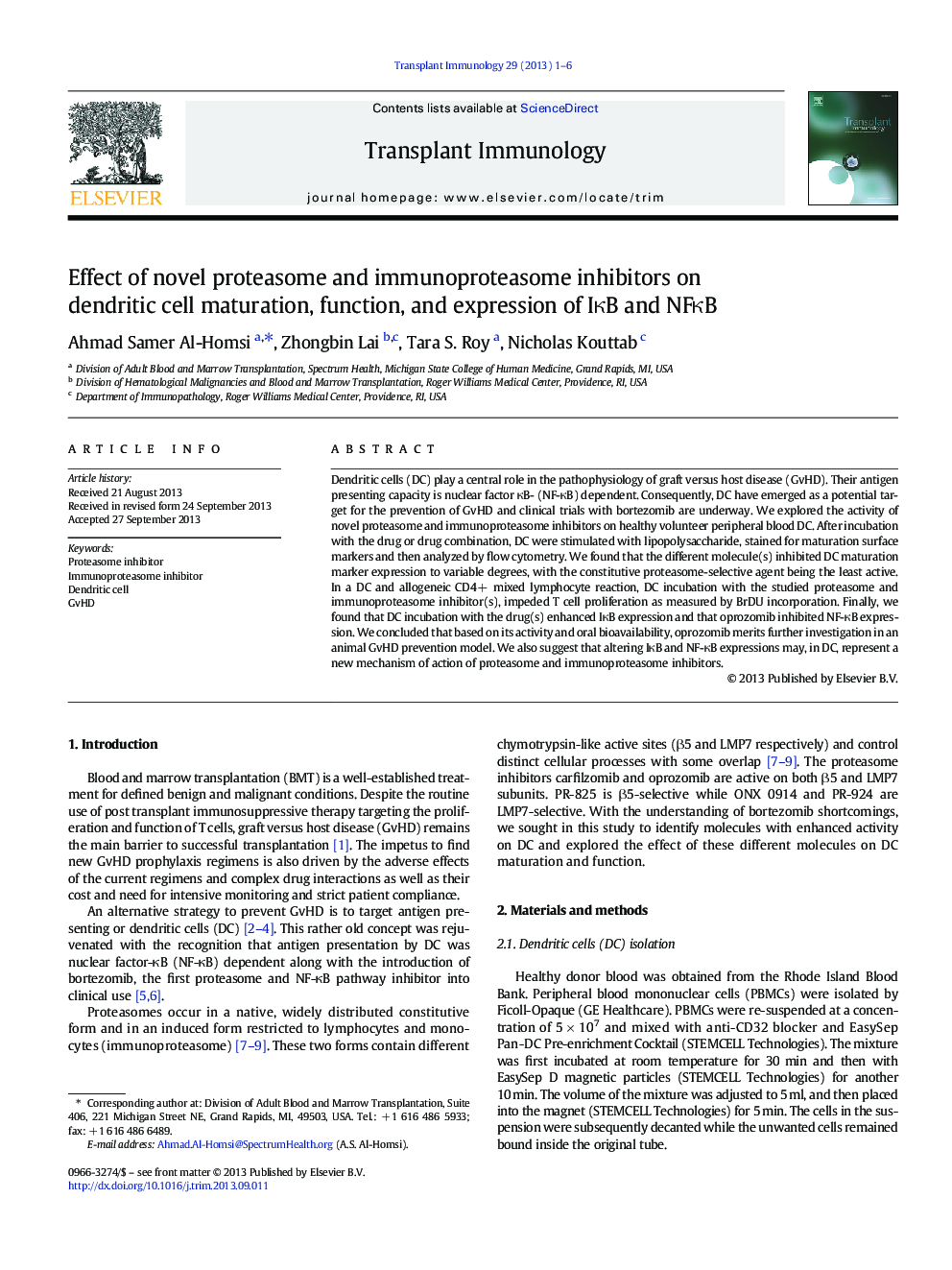| Article ID | Journal | Published Year | Pages | File Type |
|---|---|---|---|---|
| 6126017 | Transplant Immunology | 2013 | 6 Pages |
Abstract
Dendritic cells (DC) play a central role in the pathophysiology of graft versus host disease (GvHD). Their antigen presenting capacity is nuclear factor κB- (NF-κB) dependent. Consequently, DC have emerged as a potential target for the prevention of GvHD and clinical trials with bortezomib are underway. We explored the activity of novel proteasome and immunoproteasome inhibitors on healthy volunteer peripheral blood DC. After incubation with the drug or drug combination, DC were stimulated with lipopolysaccharide, stained for maturation surface markers and then analyzed by flow cytometry. We found that the different molecule(s) inhibited DC maturation marker expression to variable degrees, with the constitutive proteasome-selective agent being the least active. In a DC and allogeneic CD4 + mixed lymphocyte reaction, DC incubation with the studied proteasome and immunoproteasome inhibitor(s), impeded T cell proliferation as measured by BrDU incorporation. Finally, we found that DC incubation with the drug(s) enhanced IκB expression and that oprozomib inhibited NF-κB expression. We concluded that based on its activity and oral bioavailability, oprozomib merits further investigation in an animal GvHD prevention model. We also suggest that altering IκB and NF-κB expressions may, in DC, represent a new mechanism of action of proteasome and immunoproteasome inhibitors.
Related Topics
Life Sciences
Immunology and Microbiology
Immunology
Authors
Ahmad Samer Al-Homsi, Zhongbin Lai, Tara S. Roy, Nicholas Kouttab,
